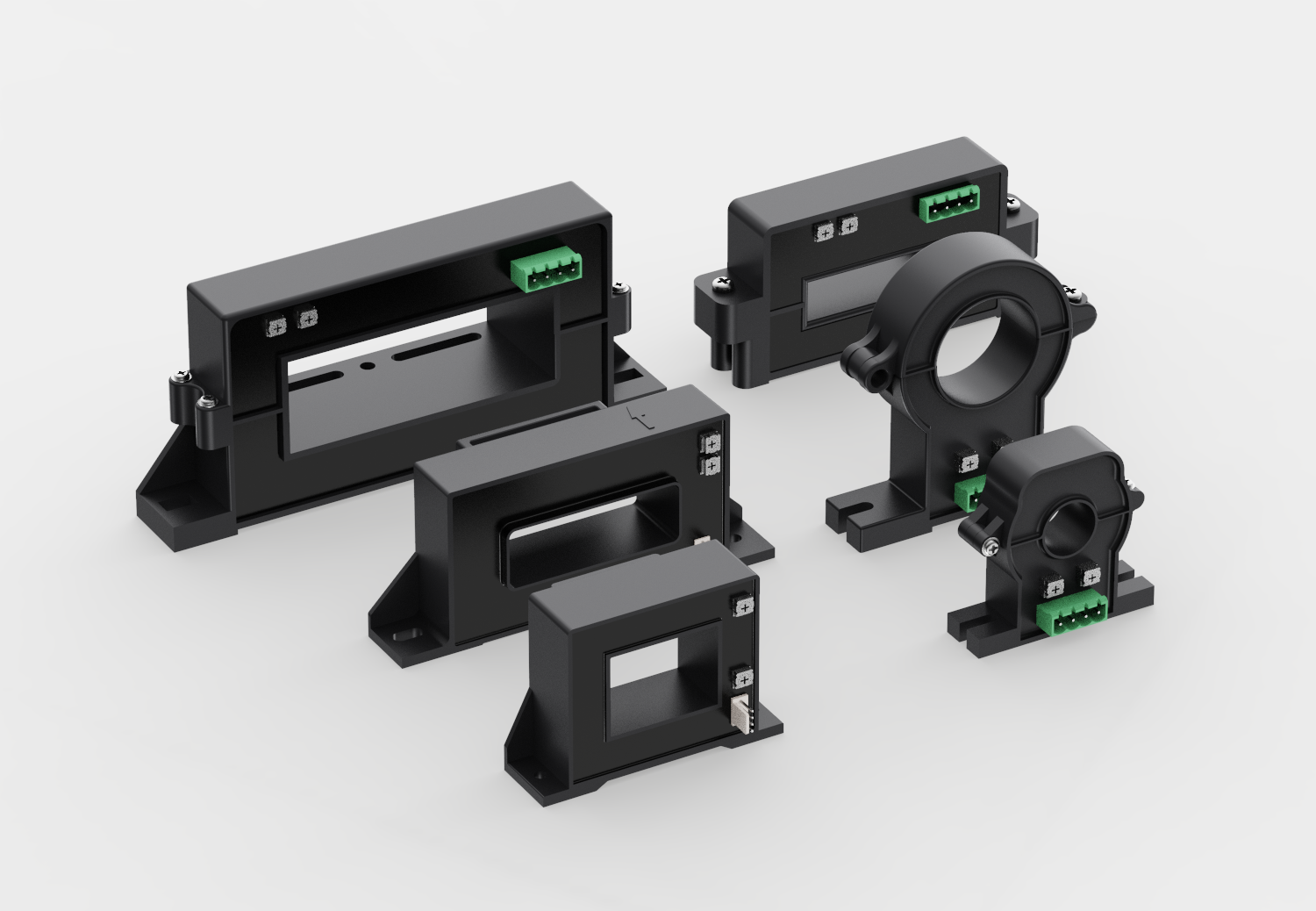Our Location
B319, 6433 Yinggang East Road,
Qingpu District, Shanghai
Open loop Hall sensors have been widely used in industrial industries due to their Hall effect, and have an irreplaceable role and historical significance. It can measure DC, AC, and complex current waveforms, while providing electrical isolation. It has the advantages of low cost, small size, light weight, and low power consumption. Its advantages are particularly evident when measuring high currents (>300A). In many application scenarios, open-loop Hall sensors are irreplaceable.
At the same time, they also have limitations, such as large zero bias, poor anti-interference ability, and poor long-term stability, which have led many customers to seek more expensive current sensors to replace them.
In response to the numerous limitations of open-loop Hall current sensors, DEXIE has launched the Super Open-Loop series, which not only retains many advantages of ordinary open-loop Hall current sensors, but also overcomes most of their existing problems. In many performance aspects, it even surpasses closed-loop Hall current sensors. The most important point is that the super open-loop maintains the same price as the ordinary open-loop and is favored by the market.

Advantages of Super Open Loop:
1. Measurement range
Ordinary Hall open-loop: 10A~100000A
Super Hall open-loop: 0.1A~100000A
Advantage: Super open-loop Hall sensor has a wider measurement range, especially capable of measuring smaller currents (0.1A), suitable for more application scenarios.
2. EMC (Electromagnetic Compatibility)
Ordinary Hall open-loop: poor
Super Hall open-loop: excellent
Advantages: Super open-loop Hall has excellent electromagnetic compatibility and can work stably in complex electromagnetic environments, reducing interference.
3. Position error
Ordinary Hall open-loop: poor
Super Hall open-loop: excellent
Advantage: Super open-loop Hall sensor performs excellently in terms of position error, providing more accurate measurement results and reducing errors caused by installation position.
4. Anti interference capability
Ordinary open-loop Hall effect: weaker
Super open-loop Hall: Strong
Advantage: Super open-loop Hall has strong anti-interference ability and can maintain stable performance in high interference environments.
5. Temperature drift
Ordinary Hall open-loop: ≈ 0.04%/℃
Super Hall open-loop: ≈ 0.01%/℃
Advantage: The super open-loop Hall sensor has a smaller temperature drift and can maintain high-precision measurement over a wider temperature range.
6. Stability
Ordinary Hall open-loop: poor
Super Hall open-loop: excellent
Advantage: Super open-loop Hall has excellent stability, can work stably for a long time, and reduces the frequency of maintenance and calibration.
7. Zero offset
Ordinary Hall open-loop: 0.5%
Super Hall open-loop: 0.05%
Advantages: The zero offset of the super open-loop Hall sensor is smaller, providing more accurate zero reference and improving measurement accuracy.